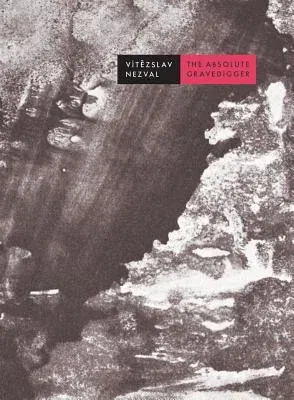The Absolute Gravedigger, published in 1937, is in many ways the
culmination of Va-tÄ>zslav Nezval's work as an avant-garde poet,
combining the Poetism of his earlier work and his turn to Surrealism in
the 1930s with his political concerns in the years leading up to World
War II. It is above all a collection of startling verbal and visual
inventiveness. And while a number of salient political issues emerge
from the Surrealist ommatidia, Nezval's imagination here is completely
free-wheeling and untethered to any specific locale as he displays
mastery of a variety of forms, from long-limbed imaginative free verse
narratives to short, formally rhymed meditations in quatrains, to prose
and even visual art (the volume includes six of his decalcomania
images).
Together with his previous two collections, The Absolute Gravedigger
forms one of the most important corpora of interwar Surrealist poetry.
Yet here Nezval's wild albeit restrained mix of absolute freedom and
formal perfection has shifted its focus to explore the darker imagery of
putrefaction and entropy, the line breaks in the shorter lyric poems
slicing the language into fragments that float in the mind with
open-ended meaning and a multiplicity of readings. Inspired by Salvador
Dala-'s paranoiac-critical method, the poems go in directions that are
at first unimaginable but continue to evolve unexpectedly until they
resolve or dissolve -- like electron clouds, they have a form within
which a seemingly chaotic energy reigns. Nezval's language, however, is
under absolute control, allowing him to reach into the polychromatic
clouds of Surrealist uncertainty to form shapes we recognize, though
never expected to see, to meld images and concepts into a constantly
developing and dazzling kaleidoscope.

